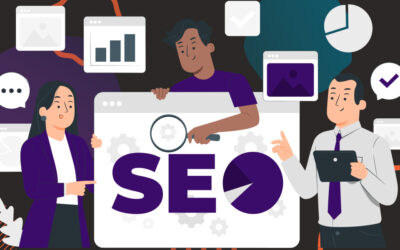Remember Nostradamus, that mad ancient prophet everyone was discussing on the eve of the millennium? In his ragged, ominous texts he made wild predictions – so many, in fact, that you could attribute them to any future event. It was his ramblings that sparked apocalyptic discussions in 1999. What if Nostradamus had correctly prophesied the end of days come midnight on the 1st January 2000? What if Y2K would cause machines to rise against us, with killer ATMs roaming the streets? What if we’d be scrabbling for food beneath a dystopian rubble by the 2nd January? Nostradamus was wrong, of course. But that’s the problem with predicting the future – it rarely pans out the way you expect it.
The Rise of Digital Media
Just look at the speedy advance of digital media. Only a decade ago, the plethora of social networks we take for granted would have been almost unthinkable. In 2005, MySpace had barely entered the public consciousness, while YouTube (a site that even your gran uses nowadays) launched with a 19-second video clip of a man at a zoo. But even the current landscape is shifting. Twitter, which averaged 304 million monthly users in the second quarter of 2015, is looking financially shaky, its stock price dropping because of a lack of innovation. Moreover, the younger generation have grown less comfortable with media that gives them a permanent digital footprint. They’re turning their backs from Facebook and Twitter (which, horror of horrors, their parents use) and favouring apps like Snapchat, which deletes messages after only a few seconds. The plains on which media agencies stand, then, might seem unstable. But a high-quality agency doesn’t need tealeaves to predict progressions in the industry. Unlike Nostradamus, marketers and developers can forecast future developments simply by looking at the decisions made by social media brands today. So what changes will be happening on social media, and how will it impact your company?
Twitter takedown
As has been mentioned, Twitter’s stock price took a nosedive in August, leading many to question its long-term viability. Of course, it’s a criticism that’s largely unfair. Despite its lack of additional features over the past year, the site famed for its brevity is a major headline generator for newspapers (just look at the number of column inches dedicated to Katie Hopkins’s account) and still pulls in hundreds of millions of users ever month. Since August, Twitter’s stock has risen, with the additional feature of a “Buy” button that can be purchased by businesses for a direct and aesthetically pleasing link to their site. As long as the network can increase its ad revenue, its future will be bright – otherwise it could become a social wasteland. The MySpace of its generation.
A dislikeable future?
Simplicity has always been the key to a successful social network. And the ability to ‘like’ a post on Facebook has been at the core of its popularity. Now, in a bid to reenergise the platform, Facebook CEO Mark Zuckerberg has announced a long-awaited ‘dislike’ button. It might seem like a simple addition, but it could also throw the network off balance – and create a dilemma for businesses. After all, no company wants to risk a thousand dislikes on their promotional post. But avoiding the dislike button on a company page could look like a sign of defeat or a lack of confidence in your product. It’s a balancing act for a business trying to gain a foothold on Facebook, so you’ll have to pause for extra thought before you post.
Content is opening up
Since the dawn of the social media revolution, sharing content has been the way to get free recognition – but actually getting the content noticed is a trickier business. With the proliferation of hundreds of thousands of clips and images and interactive widgets and thingamajigs and wotchamacallits, the need to be noticed in the right places is vital. Frijj milkshake, which has been consistently successful online, has been winning awards for its You LOL You Lose game, which incorporates YouTube clips with facial recognition technology to create an interactive game challenging users to keep a straight face while watching amusing clips. It’s innovative tech like this that’s being celebrated by digital agencies and making a big impression on users, increasing the click-through rate (CTR) to a company’s website. Conclusions about the future So there you have it. In this grab-bag collection of future developments, what can we learn?
For one, companies shouldn’t restrict themselves to a single social media platform – it could flounder within only a few years.
For two, negative feedback could prove overwhelming for a company with a poor social media presence if Facebook’s latest announcement is anything to go by – so you’ll have to keep your content likeable.
And for three, innovation is the key to getting noticed. Amidst high volumes of content, engaging and entertaining words, images and apps are still the best strategy to finding an audience.
While no one can predict the future, we’re experts at shaping it in the digital landscape. If you want to join our future and see your business grow, get in touch






